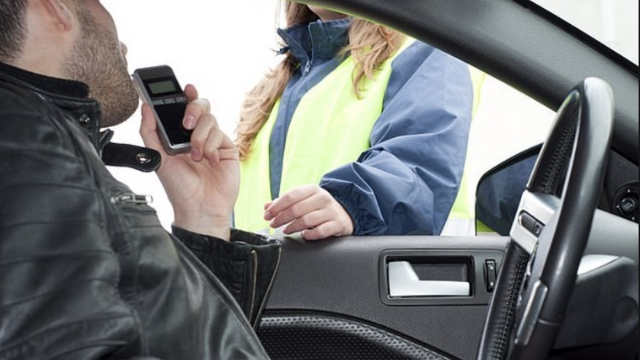Drink Driving Licence Suspension Tough New Laws
Rules – Drink Driving Licence Suspension
As of 20 May 2019, all drink drivers will be subject to an immediate 3-month licence suspension.
The new rule applies to all drink driving offences, including low range drink driving.
This means that any full licence holder who is detected with a blood alcohol concentration of 0.05 or higher will lose their licence.
The new rules apply to all offenders, regardless of whether it is an offender’s first or subsequent offence.
Offenders will also receive a $561 fine.
The new rules also apply to people who are caught driving with illegal drugs in their system (if the offence is confirmed by laboratory analysis).
How To Avoid A Drink Driving Licence Suspension
Having your licence suspended may cause significant stress in your day-to-day life.
If you have been charged with a drink driving offence and want to avoid a licence suspension there are three main options available:
- Keeping your licence – successfully defending the charge;
- Asking the court to dismiss the charge;
- Appealing the licence suspension.
This is, however, assuming that the new laws will operate pursuant to the current system. Due to the infancy of the new provisions, there is a possibility that the courts may adopt a different approach once applicable cases are brought before them.
Option 1: Defending the charge
The first option is to defend the charge.
To achieve this, you will need to plead not guilty.
There are four main arguments that may assist in successfully defending the charge, which is as follows:
Inaccurate reading – Many people don’t know that it is not the initial roadside breath test which forms the basis of a drink driving charge. If a driver fails a roadside breath test, they must be taken to a police station (or hospital) to undergo a more reliable test. Therefore, a common argument raised in drink driving cases is that a person’s BAC was likely lower at the time of the initial test.
The two-hour rule – Police cannot perform a breath test more than two hours after a person has driven. If a breath test was performed two hours after driving, evidence of the breath test can be excluded by the court.
The home safe rule – Police cannot breath test you on your own property. Again, if they do, this evidence can be excluded in court.
Honest and reasonable mistake defence – While rare, it is sometimes possible to escape liability by proving that you ‘honestly and reasonably’ believed you were under the limit at the time of driving.
Option 2: Getting the charge dismissed
The next available option is to take the matter to court and apply for a Conditional Release Order (CRO) without conviction.
Essentially, this means that even if a court finds you guilty of drink driving, the court can exercise its discretion and dismiss the charge.
When will the court grant a CRO without conviction?
CROs are governed by the Crimes (Sentencing Procedure) Act 1999 (NSW).
They were introduced in 2018 as a replacement for good behaviour bonds.
Instead of convicting an offender, section 10(1) of the Act outlines that a court may:
- Make an order directing that the relevant charge be dismissed; or
- Make an order discharging the person under a CRO; or
- Make an order discharging the person on the condition that they participate in an intervention program (such as the Traffic Offenders Intervention Program).
In determining whether to grant a CRO without conviction, the court will consider:
- A person’s character, age, health and mental condition;
- Whether the offence was of a trivial nature;
- Any extenuating circumstances that existed at the time of the offence;
- Any other matter that the court deems appropriate to consider.
Option 3: Appealing the licence suspension
Another alternative to the options outlined above is to appeal the licence suspension.
When considering this type of appeal the court does not determine a person’s guilt or innocence. Instead, they will consider a range of factors to determine whether the licence suspension is appropriate.
In order to successfully appeal the suspension, you will need to demonstrate that there are exceptional circumstances in your case which justify either reducing the suspension period or lifting it completely.
When determining whether exceptional circumstances exist, the court will consider a range of factors including:
- Your need for a licence
- Any potential danger to the community
- Any other matter the Local Court deems relevant
The appeal must be filed with the Local Court within 28 days.
Key Takeaways
- As of May 20, 2019, NSW enforces immediate 3-month license suspension for all drink driving offenses, even for first-time low range offenders.
- Offenders also face a $561 fine, with rules extending to those caught driving with illegal drugs confirmed by laboratory analysis.
- Options to avoid suspension include defending the charge, asking for charge dismissal, or appealing the suspension, each with specific legal strategies.
- The changes highlight the strict stance NSW takes on drink driving, aiming to deter such behavior through immediate penalties.
The best course of action if your licence has been suspended
The best course of action will depend on the circumstances of your case. Our lawyers have extensive experience in traffic matters and can advise you on the approach that is right for you.
If you have been charged with drink driving and have a real need for your licence, contact Hamilton Janke Lawyers24 hours a day, 7 days a week on 4038 1666.
Written By

James Janke
James Janke is founding partner at Hamilton Janke Lawyers, and has more then decade of experience as a Criminal Defence Lawyer. Admitted to both the Supreme Court of New South Wales and High Court of Australia




